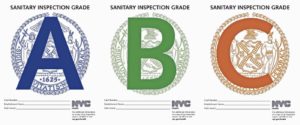The following is an article from KTLA: As Southern California Jews continue to celebrate Passover, there’s some shocking news about the meat that may be on their dinner tables. The Rabbinical Council of California has removed its supervision from one of the area’s most prominent glatt kosher meat distributors. You’ve probably heard of kosher — glatt kosher more strict. There are strict religious guidelines for preparation, and it is very expensive to buy. One distributor who provides meat to restaurants, caterers, and customers in Southern California has lost its religious backing, and an undercover video may explain why. For Rabbi Shimon Kashani and many of the Jewish faith, eating glatt kosher meat is an important part of their religious practice. It’s so important that religious supervisors oversee every aspect of the food’s preparation and distribution. And Jewish families pay up to triple the cost of non-kosher meat. At Doheny Kosher Meat on Pico Blvd in Los Angeles, undercover video and pictures show — at first glance — the rules are being followed. A supervisor called a Mashgiach unlocks the warehouse and inspects the deliveries. “He’s looking to make sure products are coming from glatt kosher slaughterhouse. They have the proper labels, they have the proper seal,” Rabbi Kashani explains. But the pictures taken by private investigator Eric Agaki have raised serious concerns among rabbis throughout California. On March 7th, 2013, Agaki videotapes a vehicle at an unsupervised warehouse in Reseda at 5:58 a.m. The private investigator follows the vehicle to a McDonald’s parking lot, where it’s met by another car, driven by Mike Engleman, the owner of Doheny Glatt Kosher. Pictures show both trunks open. “They transferred the glatt kosher boxes from his vehicle to the owner of Doheny Market,” Agaki says. A short time later, video shows Englaman’s car at his lot at Doheny Glatt Kosher. Engleman waits for the Mashgiach to arrive and unlock the door to oversee the delivery of sealed glatt kosher boxes. But when the Mashgiach appears to leave the site, Engleman’s trunk is opened. “As soon as the Mashgiach left and turned the corner, he signaled his workers to offload his trunk,” Agaki says. “Same boxes, but they’re used. You can see they’re open, you can see that they’re old, you can actually see some of them flapping,” he describes. The boxes offloaded from the SUV are labeled glatt kosher, but their appearance troubles Rabbi Kashani, as does the apparent lack of supervision. “It seems that they’re bringing in some boxes that are not supposed to be there, and they’re bringing them in when the Mashgiach isn’t there — that’s very troubling,” Kashani says. We visited Doheny Glatt Kosher Meat Sunday night after we were told the Rabbinical Council of California — or RCC — as shown the undercover video. No one would answer questions, except for one loyal customer. “I would be surprised. I know the people, it’s a rumor,” the customer said. But just before 10 p.m. Sunday night, many in the Jewish community received an email informing them: “The RCC announced… it removed its kosher supervision, for cause, from Doheny Kosher Meats located at 9213 West Pico Blvd.” It went on to say that meat bought there until before 3 p.m. Sunday “is permitted to be eaten and can be enjoyed








